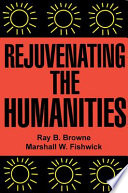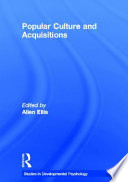 | Stanley Cavell - 1992 - 178 pages
...in "The American Scholar" of the matters whose "ultimate reason" he demands of students to know — "The meal in the firkin; the milk in the pan; the...glance of the eye; the form and the gait of the body" — is a list epitomizing what we may call the physiognomy of the ordinary, a form of what Kierkegaard... | |
 | Ray Broadus Browne, Marshall William Fishwick - 1992 - 188 pages
...sage advice as to how to find the best material for understanding the world in which we live: study "the meal in the firkin; the milk in the pan; the...news of the boat; the glance of the eye; the form and gait of the body." Walt Whitman insisted that a mouse is miracle enough to stagger sextillions of infidels.... | |
 | Ray Broadus Browne, Marshall William Fishwick - 1992 - 188 pages
...sage advice as to how to find the best material for understanding the world in which we live: study "the meal in the firkin; the milk in the pan; the...news of the boat; the glance of the eye; the form and gait of the body." Walt Whitman insisted that a mouse is miracle enough to stagger sextillions of infidels.... | |
 | Maurice Wohlgelernter - 1993 - 428 pages
...the Phi Beta Kappa celebration of 1837, was startling. I embrace the common, I explore and sit at the feet of the familiar, the low. Give me insight into...news of the boat; the glance of the eye; the form and gait of the body; . . . 14 Emerson immediately provides the response to the rhetorical question posed... | |
 | Allen W. Ellis - 1992 - 164 pages
...Arabia; what is Greek art, or Provencal Minstrelsy; I embrace the common. I explore and sit at the feet of the familiar, the low. Give me insight into today, and you may have the antique and future worlds.10 Proponents of popular culture argue that true insight into any era of culture can be gained... | |
 | Jackson Lears - 1995 - 416 pages
...contradictory American mission. The artist was to engage the palpable actualities of everyday life — "the meal in the firkin; the milk in the pan; the...news of the boat; the glance of the eye; the form and gait of the body," in Emerson's litany — yet these were merely appearances to be penetrated en route... | |
 | Richard Swigg - 1994 - 284 pages
...the poet's celebration." 13 So Emerson's example in "The American Scholar" (1837)—as he tells over "The meal in the firkin; the milk in the pan; the ballad in the street" 14 —belongs, for Tomlinson, in his introduction to the Selected Poems of Williams, with the "list"... | |
 | Hans Bergmann - 1995 - 276 pages
...become the subject of educated, elite attention. He proposes a new task for the American scholar: 31 What would we really know the meaning of? The meal...news of the boat; the glance of the eye; the form and gait of the body; — show me the ultimate reason of these matters; — show me the sublime presence... | |
 | Forrest G. Robinson - 1995 - 288 pages
..."What would we really know the meaning of?" asked Emerson sweeping aside the long descent of erudition. "The meal in the firkin; the milk in the pan; the...news of the boat; the glance of the eye; the form and gait of the body."7 Though he was indubitably "very respectable," Emerson anticipated Hemingway's preference... | |
 | Donald Pizer - 1995 - 310 pages
...Domestically, the origins of realism can be traced back through famous passages of Ralph Waldo Emerson (such as "What would we really know the meaning of? The meal...firkin; the milk in the pan; the ballad in the street . . .") and Joel Barlow's "Hasty Pudding," arriving ultimately at 1610 or 1607 (if we settle for English-language... | |
| |